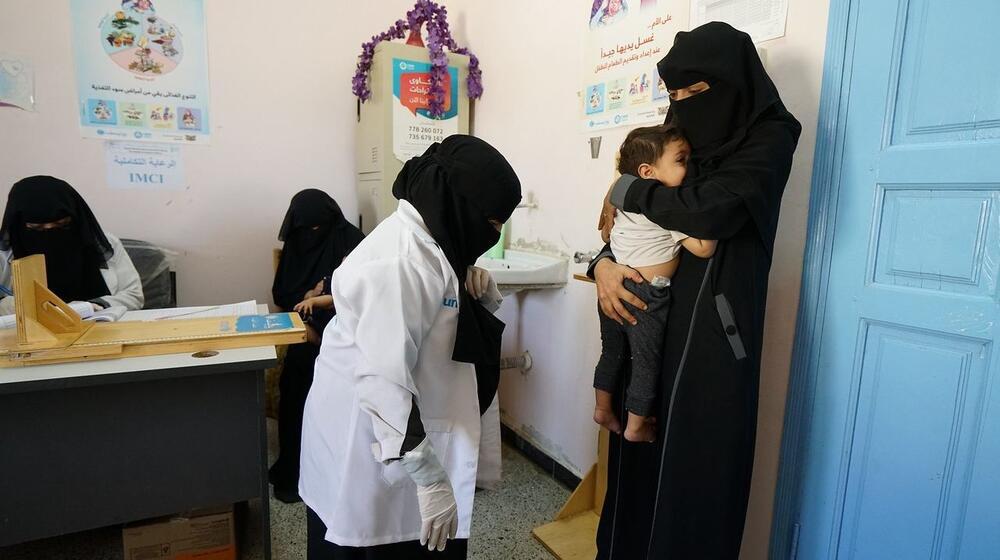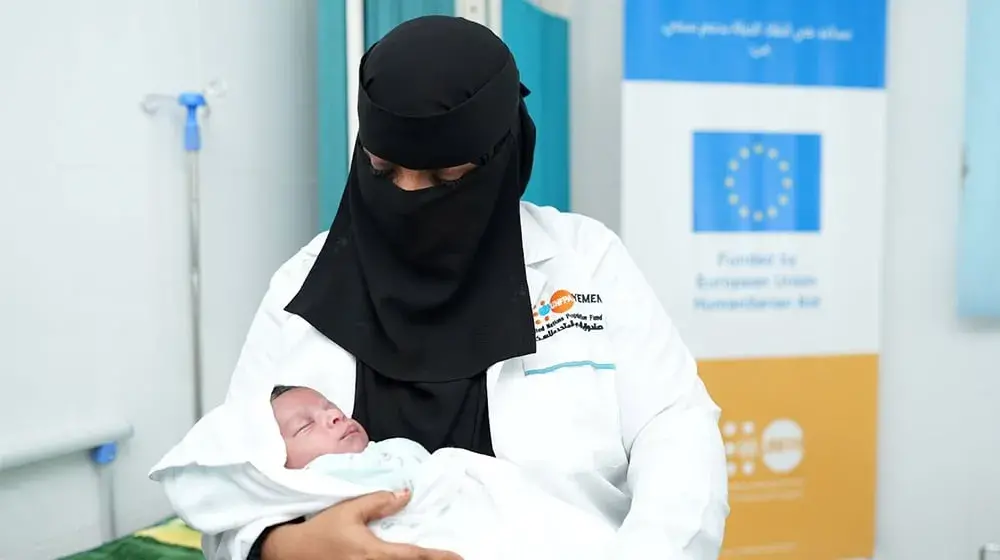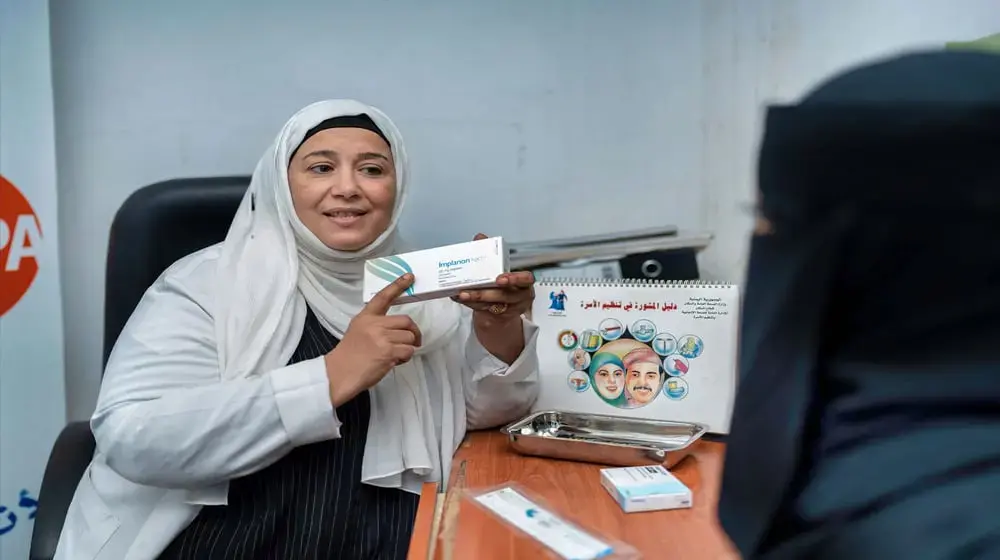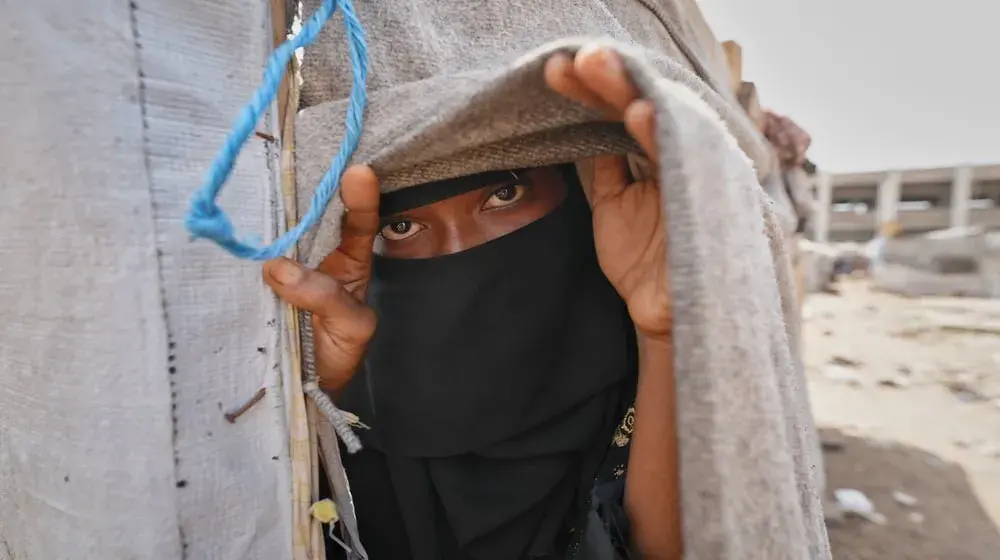AL MUFTAH DISTRICT, Hajjah Governorate, Yemen – At 16, Thekra Obied was one more mouth to feed in her impoverished family, so they married her off to Ahmed, a wood collector 15 years older. At 19, she became pregnant with their first child, but they could barely afford food on Ahmed’s salary of less than $5 a month in a conflict-ridden country with rampant unemployment.
“It became harder to secure food since household staples continued to double in price,” Ahmed explained. “I can’t sleep, wondering, ‘Is my family going to perish because of lack of food?’”
For the entire nine months of her pregnancy, Ms. Obied ate only tomatoes and potatoes, leading to anaemia and acute malnutrition. By the time she was ready to give birth, she weighed 40 kilograms (about 88 pounds).
A life-threatening ripple effect
The consequences of war in Ukraine are rippling ever outward, thousands of miles and continents away from air raid sirens and military gunfire that have become part of the daily soundtrack.
Ukraine and Russia are among the planet’s breadbaskets, supplying 30 per cent of wheat and 20 per cent of maize to the world. They also supply three-quarters of sunflower and a third of barley. In a World Food Programme (WFP) report, an estimated 13.5 million tons of wheat and 16 million tons of maize remain stuck there.
Of 52 countries likely to see a rise in food insecurity in the next six months, 18 are described as “high” in severity, including Afghanistan, Syria and Kenya. Seven countries – Lebanon and Sudan among them – import more than 50 per cent of their wheat needs from Ukraine or Russia and “are likely to be the first experiencing repercussions from the crisis in terms of food prices and/or shortages.” In the long term, global food prices will spike even more as a result of Russia’s role as a leading producer of fertilizer needed for crops.
According to the WFP, 276 million people globally are already acutely food insecure; that figure would rise an additional 33 million people in 81 countries if the war ends within the month. Beyond April, that number increases to 47 million additional people facing acute food insecurity. In both scenarios, sub-Saharan Africa is most affected. The cost of a food basket has risen, especially in Ethiopia (by 66 per cent), where up to 6.5 million people are acutely food insecure, and Somalia (by 36 per cent), where more than 6 million people are acutely food insecure.
Since the war broke out in Yemen in 2015, most of the country’s population has depended on humanitarian food assistance. Yemen imports more than half of its wheat from Ukraine and Russia, and prices are rising. Between mid-February and mid-March, two key staples have spiked: cooking oil by 36 per cent and wheat flour by 11 per cent.
This year, approximately 19 million people (59 per cent of the population) – an estimated 1.3 million pregnant and lactating women are already acutely malnourished – will be in need of food assistance.
An uncertain future
By the time Ms. Obied went into labour a few weeks early, she was fainting constantly. She was also too weak to bear the pain of labour contractions. Transportation to Bani Al Shamakh Hospital 30 kilometres away cost $66 they had to borrow from a neighbour. “When Thekra entered, I was afraid – she was exhausted, weak, and in critical condition,” said Arzaq, a midwife.
Ms. Obied herself was “was certain that I would not live. On the way to the hospital, I stopped sensing myself. I only heard the echo of my husband’s voice.”
The emergency obstetric team immediately got to work, discovering the umbilical cord was wrapped around the neck of the baby, whose heartbeat was slowing down. “Thekra went through a difficult labor,” said obstetrician/gynaecologist Dr. Hadeel. “The fetus was exhausted because of her poor nutritional intake during her pregnancy, which leads to extremely slow fetal growth and increases the chances of a stillbirth.”
The medical team at the health facility, supported by UNFPA with funding from the European Union, delivered a baby boy weighting 2 kilograms (4.4 pounds), but Ms. Obied began to haemorrhage severely. “You are going to live and raise your child yourself,” another midwife, Wafa’a told her. “We will not lose you today.”
And while Ms. Obied is grateful that she and her new son survived, the future weighs heavily. “Raising a child in such a catastrophic situation is another burden on our shoulders,” she said. “Sometimes we don’t know where the next meal is coming from. I hope things get better before starvation spreads its wings.”





